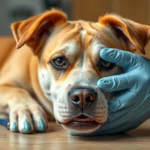
Introduction
The Papillon is a small, elegant toy breed known for its distinctive butterfly-like ears and lively personality. Typically weighing between 5 to 10 pounds and standing around 8 to 11 inches tall, these dogs are not only adored for their looks but also for their affectionate and intelligent nature. Their energetic demeanor and adaptability make them a popular choice among dog lovers. However, like all breeds, Papillons are prone to certain health issues that prospective and current owners should be aware of.
Understanding breed-specific health concerns is essential for ensuring the longevity and quality of life of your Papillon. This article aims to provide valuable insights and answers from a veterinary perspective regarding Papillon health issues.
Understanding Papillon Health Issues
Genetic Predispositions
Papillons, like many purebred dogs, can inherit genetic health problems. Responsible breeding practices are crucial in minimizing these risks. Common genetic conditions seen in Papillons include:
- Patellar luxation: This is a condition where the kneecap dislocates, leading to pain and mobility issues.
- Mitral valve disease: A heart condition that can lead to congestive heart failure if not monitored and treated.
- Eye disorders: Conditions such as progressive retinal atrophy (PRA) can affect sight.
To ensure your Papillon remains healthy, it’s important to get your puppy from a reputable breeder who conducts health screenings on their breeding stock.
Common Health Problems
Papillons are generally healthy, but certain health issues are prevalent within the breed. Here are some of the most common problems:
-
Dental Problems: Due to their small size, Papillons are particularly prone to dental issues, including periodontal disease. Regular dental care is crucial to prevent tooth loss and infections.
-
Eye Disorders: They are susceptible to various eye problems, including cataracts and lens luxation. Regular eye examinations by a vet are essential to catch any issues early.
-
Allergies: Papillons may develop allergies to food, environmental factors, or flea bites. Symptoms can include itching, skin infections, and gastrointestinal upset.
-
Luxating Patella: This common orthopedic issue affects the kneecap’s position, resulting in varying degrees of lameness. Surgical intervention may be necessary for severe cases.
-
Heart Conditions: Mitral valve disease is a significant concern in older Papillons. Regular heart check-ups can help in early detection and management of heart issues.
Signs and Symptoms to Watch For
Behavioral Changes
It’s important for Papillon owners to monitor their pets for any changes in behavior. Common signs that your Papillon might be unwell include:
- Changes in Appetite: A sudden decrease or increase in food intake can indicate health issues.
- Energy Levels: If your Papillon is lethargic or less active than usual, this could be a sign of an underlying problem.
- Signs of Pain or Discomfort: Whining, reluctance to play, or unusual positioning can all be signs that your dog is in pain.
Physical Symptoms
Observing physical symptoms can offer crucial insights into your Papillon’s health. Key signs to watch for include:
- Eye Redness or Discharge: This could indicate infections or other eye disorders.
- Limping or Difficulty in Movement: Any signs of lameness should prompt a veterinary visit.
- Skin Irritations or Excessive Scratching: These symptoms can be related to allergies or skin conditions.
Regular Veterinary Check-Ups
Importance of Routine Vet Visits
Regular veterinary check-ups are vital for maintaining your Papillon’s health. Ideally, you should schedule a visit at least once a year, although more frequent visits may be necessary for older dogs or those with existing health issues. Benefits of preventative care include:
- Early detection of potential health problems.
- Guidance on appropriate vaccinations and treatments.
- Professional advice on diet and exercise tailored to your Papillon’s needs.
Recommended Health Screenings
To keep your Papillon healthy, specific screenings are recommended:
- Dental Check-Ups: Regular cleanings can prevent serious dental disease.
- Eye Examinations: These should be performed routinely to catch any developing issues early.
- Joint Assessments: Especially important for older Papillons, monitoring joint health can help prevent pain and mobility issues.
Nutrition and Lifestyle
Diet Considerations
Nutrition plays a critical role in your Papillon’s overall health. Their small size means they require a diet that meets their specific needs without overfeeding. Consider the following:
- High-Quality Dog Food: Look for a diet that lists meat as the first ingredient and contains no fillers.
- Portion Control: Due to their small stature, portion control is essential to prevent obesity, which can exacerbate other health issues.
- Regular Feeding Schedule: Establishing a consistent feeding routine helps manage their weight and digestive health.
Exercise Requirements
Papillons are energetic dogs that require daily exercise to maintain their health. While they adapt well to apartment living, they still need regular activity. Suggested activities include:
- Short Walks: At least two short walks each day can help meet their exercise needs.
- Playtime: Engaging in interactive play, such as fetch or tug-of-war, stimulates both their mind and body.
- Training Sessions: Incorporating training into playtime not only provides exercise but also strengthens your bond.
Common Treatments and Interventions
Medical Treatments
When health issues arise, your veterinarian may recommend various treatments. Common medical interventions for Papillon health issues include:
- Medications: Depending on the condition, medications may be prescribed for pain management, allergies, or heart conditions.
- Surgical Options: For severe cases of luxating patella or other orthopedic issues, surgery may be necessary.
- Regular Monitoring: Ongoing assessments for chronic conditions, such as heart disease, are critical for maintaining quality of life.
Home Remedies and Care
In addition to veterinary treatments, there are safe home remedies and practices that can support your Papillon’s health:
- Dental Care: Regular brushing at home can help maintain oral health between vet visits.
- Skin Care: Oatmeal baths can soothe irritated skin, while proper grooming can prevent matting and skin infections.
- Diet Adjustments: Introducing supplements, such as omega fatty acids, may improve skin and coat health, but should be discussed with your vet first.
Frequently Asked Questions (FAQs)
General Health Questions
What are the most common health concerns for Papillons?
Papillons are particularly vulnerable to dental issues, eye disorders, allergies, luxating patella, and heart conditions.
How can I tell if my Papillon is unwell?
Monitor for behavioral changes, such as changes in appetite or energy levels, along with physical symptoms like limping or eye discharge.
Vet-Specific Questions
How often should I take my Papillon to the vet?
Annual check-ups are recommended, with more frequent visits for older dogs or those showing signs of health issues.
What vaccinations are necessary for Papillons?
Core vaccinations include rabies, distemper, and parvovirus. Your vet may recommend additional vaccines based on lifestyle and exposure risks.
Conclusion
Understanding Papillon health issues is essential for any owner. By being proactive about monitoring signs and symptoms, maintaining regular vet visits, and adhering to proper nutrition and lifestyle practices, you can significantly enhance your Papillon’s quality of life. Staying informed and engaged in your pet’s healthcare journey will help ensure that your furry friend remains healthy and happy for years to come.
Taking steps now can lead to a longer, healthier life for your Papillon. Always consult your veterinarian for personalized advice tailored to your dog’s specific needs and circumstances.









